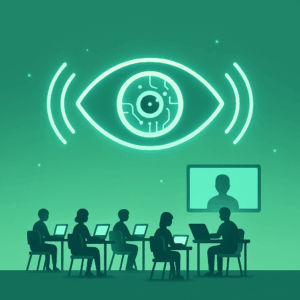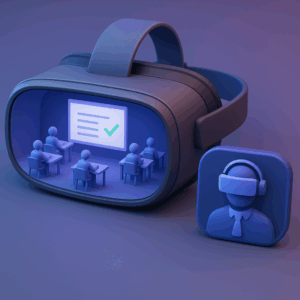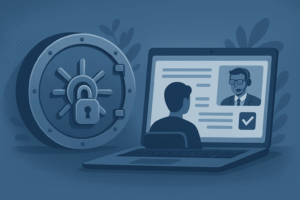Any cheating that occurs in the context of a formal academic endeavor is academic misconduct. The university takes all reports of academic misconduct seriously, and it works hard to ensure that they are dealt with quickly and effectively. You’ve probably seen many of these recently. Contract cheating cases and the latest college fraud involving celebrities are still making headlines. They may eventually divert your focus. Do they, however, have anything to do with cheating in higher education or at university? What started as exam cheating might develop into a long-term habit of adopting shortcuts.
Academic misconduct in colleges
Colleges must do more in preventing and addressing academic misconduct. Institutions, for example, might push faculty to update their teaching and testing materials more forcefully. They can expand the hours and services available at student learning and support centers. They may spend money on unambiguous marketing and education campaigns since research indicate that just discussing and admitting wrongdoing deters it. However, these efforts may be costly, putting a strain on both staff and honest students. All are commendable initiatives, but due to the budget constraints, they may be challenging to implement at some schools with more pressing priorities, such as teaching.
Academic performance loses its significance as a result of the pressure to get better marks. As a result, you’ll need to double down on your efforts to assist pupils in focusing on the learning process. It’s alluring to take shortcuts. However, this does not mean that all pupils are suspects. Something instills in them the belief that cheating is unavoidable. The data gathered from the most current and largest-scale surveys can indicate how widespread academic dishonesty is now. As someone who spends every day working with, if not worrying about, academic misconduct and witnessing professors and institutions rip their hair out attempting to stop it, we understand that more money isn’t the sole solution.
RENOWNED COLLEGES TURN TO BE AS FRAGILE:
In well-known institutions, there is a common assumption that they are better equipped to fend off cheating efforts. The large number of recorded infractions, on the other hand, proves otherwise. The data for the study gathered from 31 of the most competitive higher educational institutions in the United States. According to this study, rigorous exam proctoring and honor codes lower cheat rates, although not completely eliminate them. The most crucial factor is the student culture at a particular institution or university.
ACADEMIC DISHONESTY COMES IN MANY FORMATS, SOME OF WHICH ARE VERY OBVIOUS, WHILE OTHERS ARE LESS OBVIOUS. LET US TAKE A LOOK AT SOME OF THEM.
1. CHEATING:
Taking or providing any information or material utilized to calculate academic credit is cheating.
Examples of cheating include:
- Copying an exam or homework assignment from another student.
- Encouraging another student to copy from your test or assignment is a bad idea.
- Using textbooks, notes, or formula lists during an exam without the consent of the lecturer.
- Without the authorization of the professor, collaborating on an in-class or take-home test.
- Having a paper written or planned for you by someone else.
2. BRIBERY:
Bribery comes in different forms:
- Bribing somebody for academic gain or taking a bribe, such as when a student offers a professor money, products, or services in exchange for a passing grade, or when a professor takes this bribe.
- Trying to bribe a student with a competitive academic advantage, such as when a professor offers a passing grade in exchange for money, goods, or services, and the student accepts the bribe.
3. MISREPRESENTATION:
Any act or omission intended to deceive an instructor for academic gain is considered misrepresentation. Lying to an instructor to improve your grade, or lying to an instructor when confronted with charges of academic dishonesty, are examples of misrepresentation.
4. DUPLICATE SUBMISSION:
When a student submits an identical paper for two distinct classes, this is known as a duplicate submission. If a student submits an identical paper for two classes in the same semester, both professors must approve. If a student submits an identical paper for two separate courses in two different semesters, their present instructor must approve.
5. ACADEMIC MISCONDUCT:
Academic misconduct is tampering with grades or accessing and/or disseminating any part of an exam or assignment in violation of college regulations. Consider the following circumstance:
- Obtaining a copy of a test before its acceptance.
- Distribute the test for money or for free.
- Encourage people to get a copy of an exam before its administration.
- Adding or removing grades from a guidebook, a computer, or an assignment.
- Working on a test after the timer has been invoked.
6. IMPROPER USE OF THINGS:
Here are some instances of bad computer/calculator usage:
- Use of a computer or calculator software without permission.
- Information saved on a computer or calculator that will be submitted for a grade is sold or given away.
7. DISRUPTIVE BEHAVIOUR:
Any conduct that disrupts the teaching/learning process is disruptive. The following are some examples of disruptive behavior in the education part:
- In-class or online, disrespecting a lecturer or another student.
- During a lecture, talking, texting, or browsing anything irrelevant to the subject.
- Failure to put your phone on silent during class.
- Posting improper or unrelated to the course subject on discussion forums.
HOW TO AVOID ACADEMIC DISHONESTY:
As students of all ages have to attend their classes online in the modern day, fresh cases of academic dishonesty have emerged across the country. However, many students accused of these new forms of online misconduct are innocent, and they often have no idea how their activities might get perceived as misbehavior. Many instances of academic dishonesty arise because students do not understand how to do something properly, such as how to properly cite sources or work with material obtained from a website. In other cases, kids just make a bad choice. Here are some ideas for avoiding academic dishonesty:
1. Pay close attention to the curriculum. If you have any questions concerning class regulations, ask your professors; if you have any questions about an assignment, don’t rely on other students for answers.
2. Unless your professors specify otherwise, always assume that you have to complete assignments independently. When working on a collaborative assignment, be sure you understand what is expected of you.
3. Don’t put off starting a task until the night before. Time constraints are not a justification for cheating or plagiarism. You can also contact your teacher if you have any questions if you manage your time well.
4. Don’t provide your tasks to anybody else. If a student has a question, attempt to answer it. However, duplicating your assignment will not teach them anything, and you may get charged with academic dishonesty.
5. Keep track of your sources and understand how to reference them properly. Even if you paraphrase or summarize what someone else stated, you must credit them with the knowledge.
6. Don’t be scared to ask for an assignment extension. If you can’t complete an assignment, it’s preferable to accept a zero than to copy/submit someone else’s work and risk getting punished with academic dishonesty, which would almost certainly harm your course grade even more.
7. When taking tests in a classroom, choose your seat carefully. To limit the temptation to peek, cover your replies and move away from others. Also, don’t glance inside your bag or use your phone during a test to prevent the appearance of cheating. Remember that in many classes, simply glancing at your phone during an exam is cheating, regardless of whether you used the phone to cheat or not.
Whether you need help acknowledging sources or understanding a subject covered in class, ask for assistance. Use university resources or contact your lecturer during the office hours stated on their syllabus. Many students may not know what constitutes cheating or plagiarism and may not seek clarification from the course teacher. Some teachers may presume that pupils are already aware of the rules. As a result, students may commit acts of academic dishonesty unknowingly. Furthermore, apprehension about technical concerns and students’ unfamiliarity with other academic integrity norms might lead to issues regarding academic integrity.











